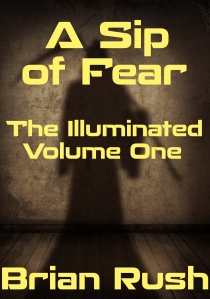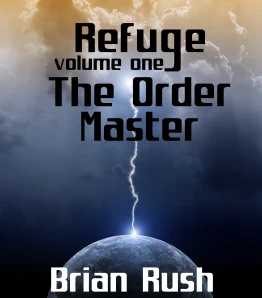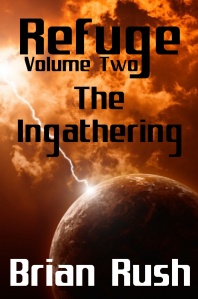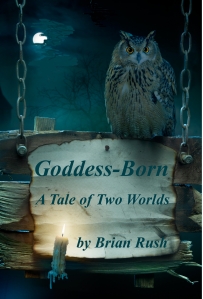 I had a bit of a debate recently with a very pleasant and erudite Druid named John Beckett over on Patheos. The debate concerned his article on difficulties finding the “right tradition for you,” and I chimed in with comments observing that maybe the problem is in the premise that any one existing tradition is “right” for you. Apparently this and the ensuing discussion provoked the good Druid enough that he followed up with another post explaining why, in his view, sticking with an established tradition is the only healthy way to pursue a spiritual path, and raising alarms about the dangers of choosing methods and ideas “at random.” (As an ironic side-note, Mr. Beckett mentioned the late Isaac Bonwitz as one of his mentors. It’s ironic because, although Bonewitz was indeed one of the founders and framers of modern Druidism, he was also one of the most eclectic, creative mages around, and one of those most inclined to thumb his nose at pretensions of orthodoxy.)
I had a bit of a debate recently with a very pleasant and erudite Druid named John Beckett over on Patheos. The debate concerned his article on difficulties finding the “right tradition for you,” and I chimed in with comments observing that maybe the problem is in the premise that any one existing tradition is “right” for you. Apparently this and the ensuing discussion provoked the good Druid enough that he followed up with another post explaining why, in his view, sticking with an established tradition is the only healthy way to pursue a spiritual path, and raising alarms about the dangers of choosing methods and ideas “at random.” (As an ironic side-note, Mr. Beckett mentioned the late Isaac Bonwitz as one of his mentors. It’s ironic because, although Bonewitz was indeed one of the founders and framers of modern Druidism, he was also one of the most eclectic, creative mages around, and one of those most inclined to thumb his nose at pretensions of orthodoxy.)
Rather than tiresomely pursing the matter in further comments and making a nag of myself, I decided to write a post of my own on the subject.
What is a Spiritual “Tradition”?
In essence, a spiritual tradition is a religion. Its focus is on the spiritual quest more than on the exoteric concerns of religion such as public morality, but otherwise it differs from other traditions in the same way as one religion differs from another. This encompasses three things: philosophical concepts, mythology, and spiritual practices.
Philosophical concepts include theology, but go beyond that to also include metaphysics and epistemology and ethics. Mythology encompasses the deities, imagery, poetry, and symbolism of the tradition. Spiritual practices include meditations, religious and magical ritual, physical exercises, lifestyle disciplines, and learning, all oriented towards achieving enlightenment, as the tradition views that concept.
There’s a certain congruence or commonality about spiritual practices that arises from their pragmatic nature. Either something works or it doesn’t, and few traditions will continue for long using a practice that doesn’t work. Thus one finds, for example, mantra and mandala meditation among Yogis, and Catholics who pray the Rosary, an exercise that’s functionally identical. All spiritual practices work an effect on the mind and the mind-set, blurring the artificial boundaries of selfhood and awakening the practitioner (potentially, anyway) to the larger Identity that hides behind the normal waking concept of I. The range is wide but not unlimited.
Mythology varies more widely. All deities and other mythic images are metaphors for the indescribable, and while not every metaphor is apt or meaningful, the array of possibilities is huge. Some mythologies, such as that of Hinduism, are highly visual and colorful. Others, like that of Islam, avoid any concrete images of the holy and emphasize the ineffable nature of God. Christian mythology resides somewhere between that of Hinduism and Islam on this scale, while most Neopagan mythology leans more towards the Hindu end of rich, poetic and artistic imagining. Anyone who has walked a spiritual path for long and achieved any significant degree of awakening understands that all of these are valid approaches.
Philosophy brings us to areas of genuine disagreement, but even here the disputes lose their significance in the face of the fact that coherent knowledge that can be expressed in words is hard to come by when dealing with the cosmos in its entirety, or the mysteries of consciousness. Those are the subject matter of the spiritual. While we cannot approach these subjects directly and straightforwardly, we can do so sideways, as it were. The discussion and the debate help move that process. The richer the discussion, the better.
A tradition, like an exoteric religion, adheres to a single set of philosophical ideas, a single body of mythology, and an authorized set of spiritual practices, rejecting all ideas, myths, and practices which lie outside this compass.
Strong and Weak Traditional Exclusivity
The idea of traditional exclusivity — that only one tradition holds truth and all others are wrong — can take what might be called a strong form and a weak form.
Strong exclusivity is the idea that only one tradition is right for everyone. One finds this idea expressed by fundamentalist Christians and, in pure form, by no one else, although Muslims come fairly close to it, acknowledging some measure of validity to Christianity and Judaism but claiming that Islam holds a more complete truth and rejecting all religious ideas outside the Abrahamic lineage.
Spiritual traditionalists who have any awareness and have made any progress seldom express strong exclusivity. More common is weak exclusivity: the assertion that following one tradition or another exclusively is the right approach for everyone. Some tradition is right for you, even if it’s not our tradition. It’s as if they’re claiming that everyone should be a fundamentalist, while declining to specify what sort of fundamentalist one should be.
Is there any basis for this claim?
What a Tradition Offers Versus What it Costs
What a tradition offers — or claims to offer — is structure, reassurance, guidance, and externally-imposed discipline. (That’s if we dismiss any claims to exclusive possession of the Truth.) All of this contrasts with the non-aligned, who must build their own structures, learn by exploration and choose which guides to follow (if any) and when not to follow them, dive boldly into the spiritual waters seeking reassurance only from success, and create discipline from within.
Following a tradition is easier. It requires more in the way of obedience, and less in the way of courage. It provides a comforting voice when the doubts inevitably arise (there are always guardians at every gate). It sits best with those who are most comfortable accepting the authority of others. Those who find staying within the limits imposed by a tradition hardest are the wildly creative, the strong of will, the highly self-assured, and the boldly self-assertive.
The problem here is that those are also the very people who are most likely to achieve the most success on the spiritual paths. Take a look at the history of any great prophet or spiritual leader, including the founders of traditions or powerful voices within traditions. Without exception, these are people who had problems with religious authorities on the way. They ran away from home in youth, like the Buddha. They were crucified like Jesus, or had to flee for their lives like Muhammad.
There’s a reason for this. The cosmos is not tame. It is wild. And its voice is seldom heard in safe, secure settings.
Is there danger in striking out on one’s own, in refusing to be contained within the limits of a tradition? Of course there is, but not nearly as much danger as some would have us believe. Magic is powerful and potentially self-destructive stuff, but beginners in the art are seldom able to raise enough power to be truly self-destructive.
Beginners make mistakes, it’s true. Does that mean they need to be carefully guided away from error, and kept on the safe path? No, because making mistakes is the only way a person learns. The journey is the destination and the question is the answer, and no one grows without making that journey and asking the questions, seeking answers rather than being spoon-fed them.
So long as people tamely follow a tradition, spirituality will remain a safely compartmentalized part of their lives, never endangering their world-views — or expanding them beyond the comfort zone. Safe spirituality is impotent spirituality.
There’s nothing wrong, of course, with learning from a spiritual tradition, and knowledge is always good. And for a time, it’s perfectly understandable that a person might need the structure and comfort that comes from belonging. But unless you feel that need (something I never have, but can vaguely comprehend), there’s nothing to be gained by defining oneself — which is to say, limiting oneself, as that is what “definition” means. Sooner or later, the child must leave the home.
Or else remain forever a child.













